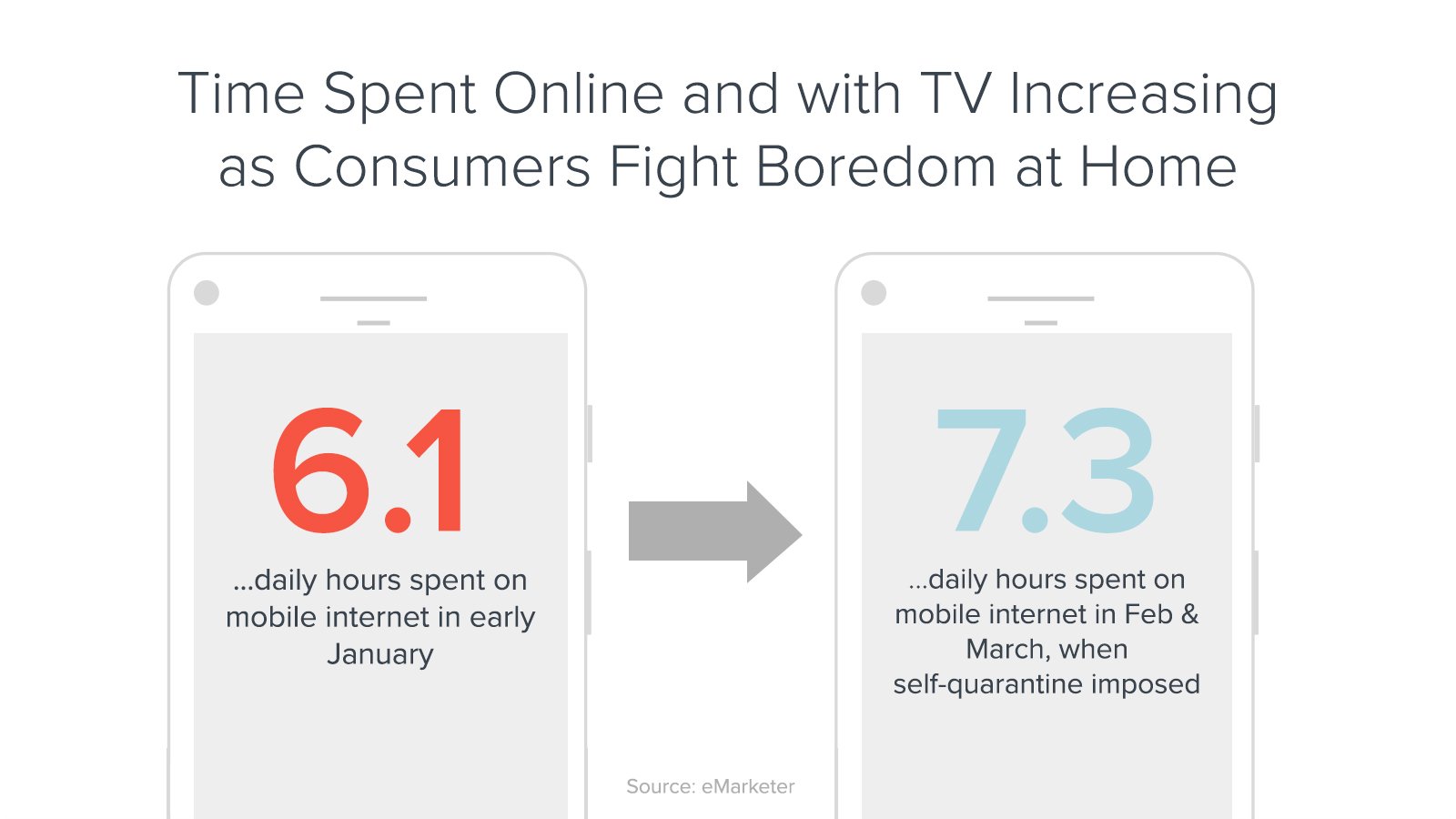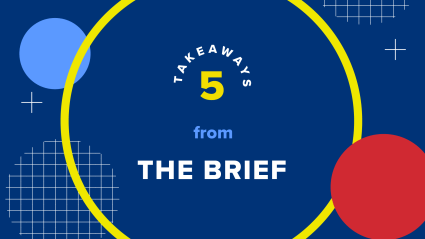There are three major challenges related to the coronavirus pandemic that the digital marketing community is facing right now, and we’re hard at work helping our clients continue to work effectively, serve their customers, and support their businesses in the midst of the crisis.
WATCH NOW
But that’s not the only action we can take to help the digital marketing community; we also wanted to share what we’re learning to help digital marketing teams prevail and even find opportunities to make an impact in a time of uncertainty and almost constant state of flux.

We’ll start with digital marketing in industries whose core business hasn’t been “directly” impacted by the outbreaks, i.e. are not dependent on in-person events, travel, etc.
Challenge: Adapting To Rapid Changes That Affect Digital Marketing Initiatives
There isn’t a single industry that isn’t being affected by the outbreak, and our client teams have been compiling best practices from across the board to help marketing leaders strategize and plan effectively.
Here’s what we’ve learned so far.
1. Stay alert — and stay flexible.
Don’t keep on doing business as usual. Take the time to analyze what’s changing and be prepared to re-allocate the budget and get creative. We’ve seen campaigns adjusted to better target local needs in the retail, investment, and even hospitality sectors. We’ve also seen a change in focus regarding new customer acquisition on the paid side; moving budget to retargeting campaigns, content, and CRO, and even reduction of overall spend if conversion is softening might be necessary, but requires consistent monitoring of how customer behavior is changing. Some clients have even seen an influx of budget from cancelled TV spots with upfront costs: be smart about how you’re spending and try to plan for foreseeable future changes.
2. Set expectations and over-communicate.
Ecommerce brands may be looking at an opportunity, but even Amazon is experiencing issues with shipping delays and supply-chain disruption. One ecommerce client chose to continue paid media spend on out-of-stock items because of international supply issues, but their continued strong sales were a result of prominent messaging about pre-ordering and ship date as well as a discount on out-of-stock items. In general, it’s absolutely necessary to keep sites, landing pages, and campaign messaging up to date, including potentially creating dedicated landing pages with specific messaging as new concerns crop up. But be aware of bandwidth issues that might arise from new creative and copy requests and plan accordingly.
3. Set aside time to plan for the post-crisis future.
Many of us are dealing with various fires that require immediate attention, but that doesn’t mean you shouldn’t be looking ahead. If you are pulling spend from areas that will impact your goals or business revenue, start making the case now for how you will effectively use that budget once the crisis has passed. How will you make up for lost ground? We have clients in the investment sector using long-term trend data to understand how investors might react post-crisis. It’s worth researching how your products or services might be shifted to meet consumer needs once the pandemic is under control. Be proactive and make the case to your organization’s leadership on how you and your team will help the business recover, make up lost ground, or find new opportunities.
That advice counts doubly for digital marketing teams in industries that are being hit very hard, but there’s more to do than just look at the future. Which leads us to our second challenge.
Challenge: Finding Digital Solutions In Highly Impacted Industries
For airlines, movie theaters, restaurants, event-related businesses, hotels, and more, the social distancing and self-quarantine measures that are now legally binding across the country represent a potential catastrophe. But digital marketing teams are well-positioned to support the core business and help set the stage for future success once the crisis has passed.
We’ve found these three strategies effective to keep the lights on through the crisis.
1. Tighten targeting and create long-term offers.
Many industries that are experiencing intense contraction because of travel bans and other limitations still have some opportunities to spend wisely. One leisure hospitality client has shifted spend from short-term bookings to broader long-term planning, as well as made sure to set up negative matches for “cancel” and “coronavirus” to make sure they’re not wasting budget on people who aren’t looking to book. Retail brands tied to travel goods are also responding to steep drops in sales with discounts and crisis-specific messaging focusing on sentiment and affinity.
2. Focus on customers and build affinity.
Chances are your customers are overwhelmed and stressed, and marketing teams have an opportunity to work with PR and comms teams to figure out messaging to customers and build long-term brand affinity. Don’t just shut everything down; consider how you can deliver helpful content to customers. For our travel and hospitality clients, there is a real slow down in new customers, which makes it doubly important to retain existing customers and deepen those relationships. Don’t pull all budget from branded search even if booking-specific campaigns are defunded. Make sure your messaging in ads on every channel is striking the right tone and addressing the right challenges, and consider creating dedicated FAQ pages for specific questions or customer support needs to be unearthed through keyword research. We’re seeing many clients shift a large percentage of still viable spend from prospecting to retargeting.
3. Proactively address changes and consider solutions.
While travel and hospitality brands are looking at drastically limited sales opportunities, businesses in the event space are even more limited in their ability to continue to operate. Clients that specialize in on-site training and education are investing in short-term virtual events and live seminars, which means splitting spend between existing audiences and testing new targeting. Movie theaters and other businesses that are actually shut down operationally are stopping the vast majority of ad spend, but taking the time to audit their content, targeting, and processes while investing in future planning.
Let’s end with the one that is impacting almost everybody.
WATCH NOW
Challenge: Executing On Digital Marketing Effectively From Home
We’re lucky at Wpromote because we were built for remote work: because our client-facing teams need to be able to toggle between the office, client meetings, and travel in between the two, we have a lot of helpful advice around how to facilitate collaboration and work efficiently, even when you’re not face-to-face with your team.
Here are three tips we think could make the difference for your marketing team.
1. Leverage technology.
We utilize Asana for task management, Slack for team communications, and Highfive for video conferencing. That means we are connected wherever we are. Make sure your entire team is comfortable and trained on the technology, and consider assigning on-demand training offered by the various software you’ve invested in or conducting group meetings to clarify how you’re using technology and expectations around communication. Think of this as an opportunity to make sure you’re getting everything you can out of your software investment!
2. Look for virtual event opportunities.
Just because we are in the middle of a crisis doesn’t mean we can’t keep learning and connecting with the community. Many events and businesses are pivoting to virtual panels, live online events, and webinars to make up for the sudden cancellation or postponement of in-person events and conferences. That means there is a lot of opportunity to stay up-to-date on what’s happening in the marketing world and continue to grow your network digitally. For example, we’re hosting an interactive virtual panel on digital marketing in the coronavirus on March 26th.
3. Practice self-care — and stick to your schedule.
We can’t lose sight of the most important element of working from home during a pandemic: health and wellness. That means making sure you’re practicing social distancing and making the time to take care of your family and loved ones. But it also means making sure you’re taking care of yourself as you work from home. Set a schedule for yourself, make time for breaks, and (if possible) try to set up a separate area for working so you can focus– and to help you draw a boundary and stop work when the day is over.







Responses